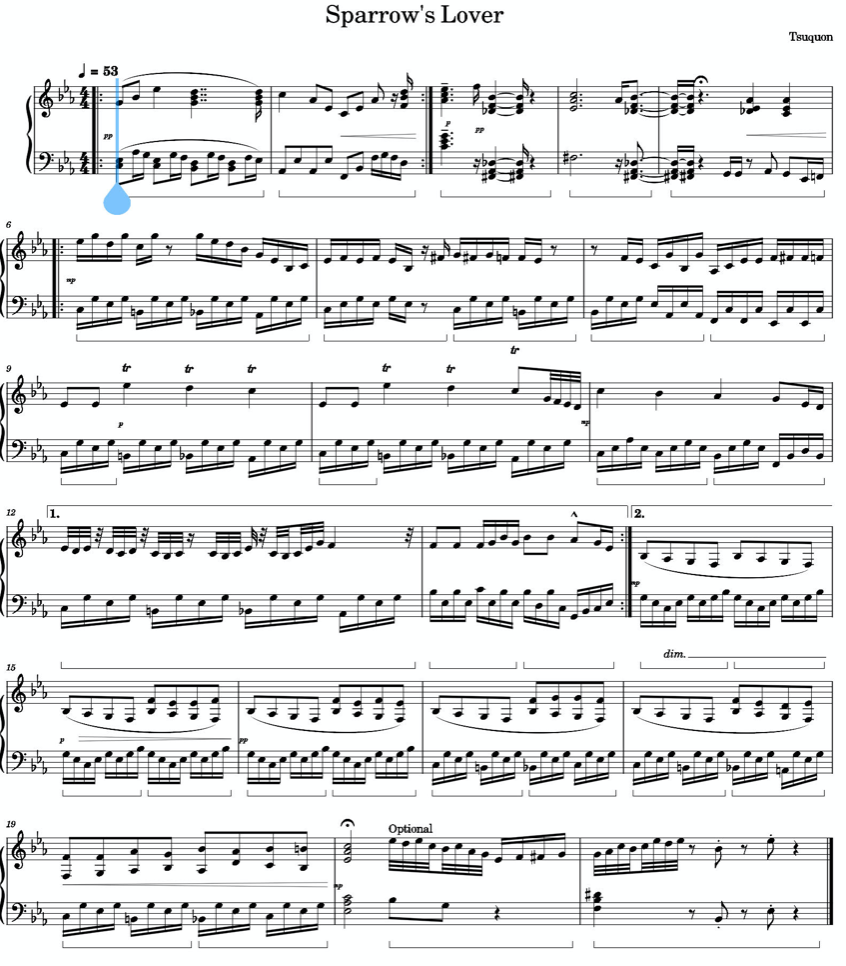“Sparrow’s Lover” Piano Adaptation
Here is the link to my piano adaptation: https://youtu.be/UK19zZQgAH
After reading some of Catullus’s poems, I was inspired to look for a piano piece that was based off of his work. I found the sheet music of a piano composition entitled “Sparrow’s Lover”, by Tsuquon, which was a loosely based interpretation of Catullus’ poem 2, “To Her Sparrow”. Catullus displayed his emotions through poems, but this adaptation conveys his emotions in a different manner, without using any words, which is why this piece is so captivating and fun to play.
This piece of music mirrors Catullus’s poem 2. In the beginning of “To Her Sparrow”, Catullus words his lines in a gentle way, describing Lesbia’s love for her sparrow. I compare this to the opening 5 measures of “Sparrow’s Lover,” which sounds peaceful and relaxing, just as Catullus seemed in the beginning.
As the poem progresses, Catullus subtly starts getting upset describing Lesbia’s infatuation with the sparrow. He claims that she “is greedily accustomed to provoke sharp bites from the sparrow”, so we can sense his hostility. In the piece of music, starting from measure 6, the song becomes more chaotic and dramatic, just like poem 2. There is also a repeat in the music, which leads me to believe the dramatic, loud, chaotic section of the piece was repeated to emphasize Catullus’s despair and pain.
After his aggression subsides, Catullus’s sense of desperation shines through in the closing lines. He whines, “if only I were able to play with you yourself, and to lighten the sad cares of your mind.” His mournful, solemn mood can be compared to the closing measures of the piano piece, where the composer instructed us pianists to play mezzo piano and piano (quietly) to capture the sadness and desperation Catullus felt when discussing Lesbia’s sparrow.
Overall, the similarities between Catullus’s poem 2 and “Sparrow’s Lover”, made this piece of music very entertaining to play.
Here is the sheet music:

